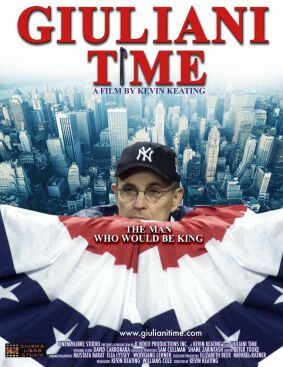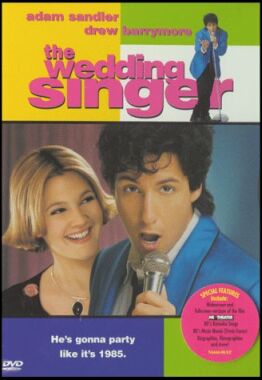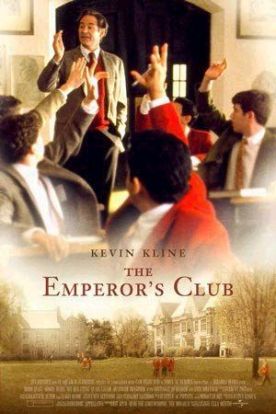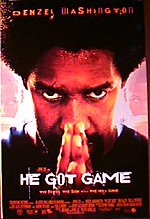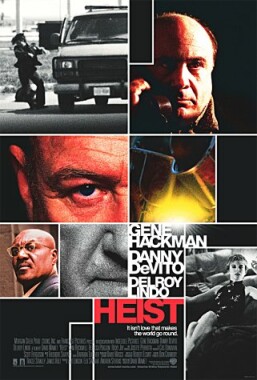Milk
Imagine that you’re a liberal-progressive with radical tendencies. Go on, it’s not that hard. You may not be a Marxist, exactly, but you accept the neo-Marxian model of a world divided into exploiters and exploited, oppressors and oppressed. You are a keen multiculturalist and sexual liberationist — by which I mean that you not only believe that people should be free to do anything they like sexually, so long as they are consenting adults, but that doing what you like sexually is a defining quality of your personhood. Anyone who dares to disapprove of or put any restrictions on your sexual self-expression in any way is as surely an oppressor as someone who runs a sweatshop or enforces Jim Crow laws or runs a colonialist government.
Now imagine that, as this very progressive person, you see a movie like — oh, I don’t know, The Searchers, John Ford’s classic Western of 1956. Just check off the boxes. Racism? Check. Sexism? Check. Racism and sexism together? Check and check. Genocide of Native Americans promoted? Check. Sexual puritanism and “repression”? Check. Promotion of war and violence, probably related to the same sexual repression? Check. Triumphalist and traditionalist approach to American history as “winning” or “taming” of the “wild” West and therefore anti-environmentalist as well as genocidal? Check. There may not be any evil capitalists or factory owners in the movie, but when you’ve said that you’ve said just about all there is to be said for it as a political document. And, of course, as a good progressive, you believe implicitly that everything is a political document.
And yet you like this movie. You may not like it a lot, but if your aesthetic sensibility is at least as highly developed as your political consciousness, you may well conclude that the movie’s reactionary politics don’t matter all that much in comparison with the beauty of its imagery and construction, its character study of a man of heroic stature and its human sympathies with those who suffered the hardships and the heartaches of the American frontier in the period just after the Civil War. Well, if you can imagine this hypothetical situation, all you have to do now is reverse it. Imagine yourself a reactionary — that should be a bit easier — faced with a left-wing, liberationist movie of a certain quality and accomplishment and you will have some idea of how I felt about Gus Van Sant’s Milk.
Not, I think, that it is on a level with The Searchers. Very few movies are, after all. But I agree with A.O. Scott the much more smitten reviewer for The New York Times, at least so far as to say that “Milk is accessible and instructive, an astute chronicle of big-city politics and the portrait of a warrior whose passion” — I would add bravery — “was equaled by his generosity and good humor.” In short, the historical Harvey Milk, one of the first openly gay elected public officials in the country who was gunned down (along with Mayor George Moscone) in 1978 by his fellow San Francisco supervisor, Dan White, is here portrayed by Sean Penn as a preux chevalier of the sexual revolution, and this celebration of his life, for all its propaganda and dubious (in my view) politics, is also a celebration of honor in perhaps the only way it still can be celebrated. The fact that White later got off with a manslaughter conviction by using the now-notorious “Twinkie defense” — offering as proof that he had been deranged at the time of the killings the fact that, although a fitness fanatic, he had binged on junk food — only serves further to cast the soft glow of nobility around the iconic figure of Harvey Milk.
Mr Van Sant does a fine job of weaving together archive footage of the period — as well, at the very beginning of the film, of an even earlier period where arrests on “morals” charges were a regular feature of homosexual life — and re-enactments of Milk’s various political campaigns and the private life which was closely bound up with them. Mr Penn’s performance is to my eye terrific — though a gay friend tells me he thinks it too self-consciously “gay” — and neither he nor White (Josh Brolin) are allowed to stray into caricature, as a lesser film might have allowed them to do. I thought the gay sex, though tastefully represented, bordered on the excessive, but I also recognize that it couldn’t have been omitted without being untrue to a man who led the way for a whole generation of gay people in defining himself, publicly, by what he got up to in the privacy of the bedroom.
You will perhaps not be surprised to learn that I regret this historical development. “Privacy is the enemy now,” says Harvey Milk in the film, and you can see what he means. But I still retain a sentimental attachment to privacy myself. Its gradual erosion if not complete elimination from our lives at the behest of a coalition of gays and feminists in collusion with a media culture which stands to gain monetarily from the fall of every remaining barrier between public and private strikes me as being a wholly lamentable state of affairs, and the possible prelude to some future tyranny that is now scarcely imaginable. The headline to Mr Scott’s review is “Freedom Fighter in Life Becomes Potent Symbol in Death.” But the possibility that the title of “Freedom Fighter” might have some of the same irony about it that it does in the case of Marxist guerrillas, fighting to institute a Stalinist or Maoist tyranny, is not a negligible one.
Discover more from James Bowman
Subscribe to get the latest posts to your email.



